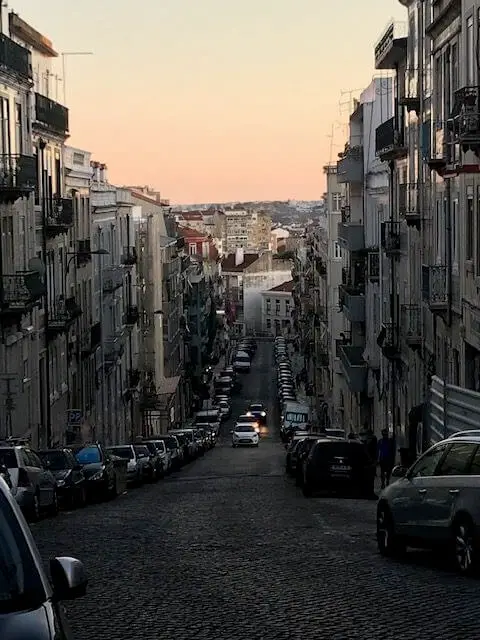
Should I rent a car in Lisbon?
If you are only going to be in Lisbon, I would not rent a car. Even with the hills, Lisbon is a very walkable city. There are elevators and funiculars or buses which can move you from the lower neighborhoods to the upper neighborhoods.
The metro goes almost everywhere in Lisbon that you would want to go. Here are two helpful articles about the Lisbon metro system. Lisbon Metro: A helpful guide to the Lisbon subway and also Hotels located near metro stations in Lisbon
Parking can be costly or hard to find. Chances are, your rental car will be parked most of the time that you are in Lisbon, and you will be out exploring the city on foot.
If you want to explore more of Portugal, I still do not think it is necessary to rent a car.
If you are OK taking a train or bus, they have efficient and low-cost service from Lisbon to Porto and almost every little village or coastal resort in between.
The network also extends south to the Algarve.
For information on trains http://cb.pt is the website for the national train service.
For information on buses between cities, consult https://www.rede-expressos.pt/en
I understand though, that you may still want the independence that comes with renting a car. In that case, go ahead and rent the car, but I would advise you to complete your stay in Lisbon first and then pick up your rental car as you are about to leave the city.
Where should I rent a car in Lisbon?
At the airport there are several agencies that rent cars. Avis, Hertz, Goldcar, Europcar, and Sixt. However, you might be able to get a better rate if you take the metro or the airport shuttle into the city center and pick up your car in the city rather than at the airport.
Most rental cars are manual drive (stick-shift). If you need a standard drive, be sure to specify.
Do I need an international drivers license in Portugal?
According to the US State Department and various car rental agencies in Lisbon, a US drivers license is valid in Portugal. An international permit is not necessary.
What about car insurance in Portugal?
According to autoeurope.eu, “All rental cars have a public/third party liability insurance with a minimum coverage amount as per local legislation. All rental cars include CDW (Collision Damage Waiver) or LDW (Loss Damage Waiver), normally with an excess fee in case of damage to or theft of the rental car.”
They continue, “At time of pick-up the car rental company’s representative may offer you extra insurance like Super CDW (to reduce or exclude the excess), Personal Accident Insurance or other insurances. You need to check for yourself if you need and want any of the optional insurances offered locally.”
Keep in mind that the credit card you use to rent the car may provide additional coverage as well.
Do they drive on the right in Portugal?
Yes, everyone drives on the right in Portugal.
Can I make a right on red in Portugal?
No. You cannot make a right turn on a red light in Portugal.
What is the speed limit in Portugal?
The national speed limit is 90 km/ h (56mph). In cities and towns it is reduced to 50 km / h (31 mph). On highways the limit is 120 km/ h (75 mph).
What else do I need to know about driving in Portugal?
Seatbelts are required for the driver and all passengers. Small children must be strapped into child-saety seats in the backseat.
It is against the law to speed, drive while under the influence of alcohol or drugs, or use a mobile phone while driving. Fines for traffic offenses are substantial.
Blood alcohol content higher than .05 liters / gram is illegal. https://portugaldrivinglaws.com/alcohollimits.php says it best, “Police may be very heavy-handed with drink driving – because that is the way they want to run their country. Respect for Portugal means respect for their laws. Do not drink and drive.”
Police in Portugal have the authority to fine on-the-spot and most of their vehicles have portable payment machines to facilitate immediate payment.
At traffic circles, if someone has already entered the circle, you must wait for them to pass before entering.
When entering the highway, vehicles already on the highway have the right-of-way. You must wait for them to pass by before merging on.
In the event of an accident, leave your car where it is and dial 112, the national emergency phone number.
I am not affiliated with any businesses mentioned in this article.